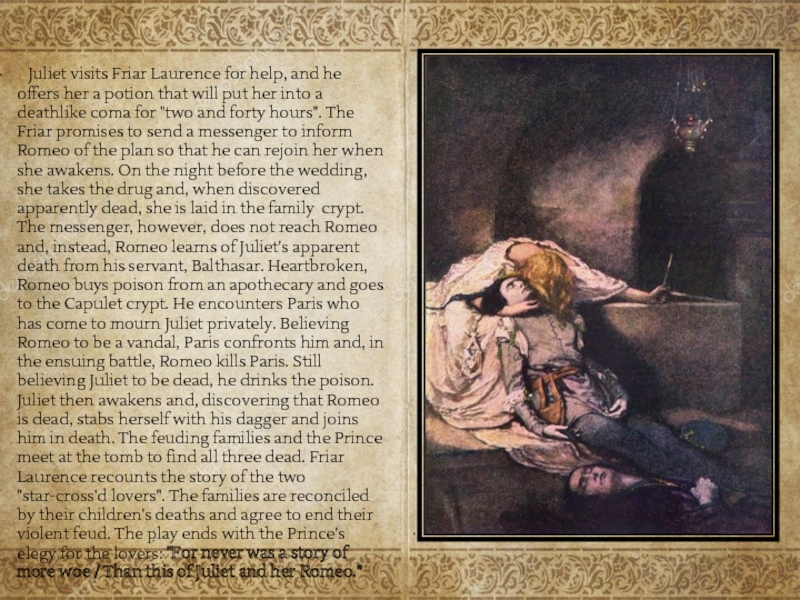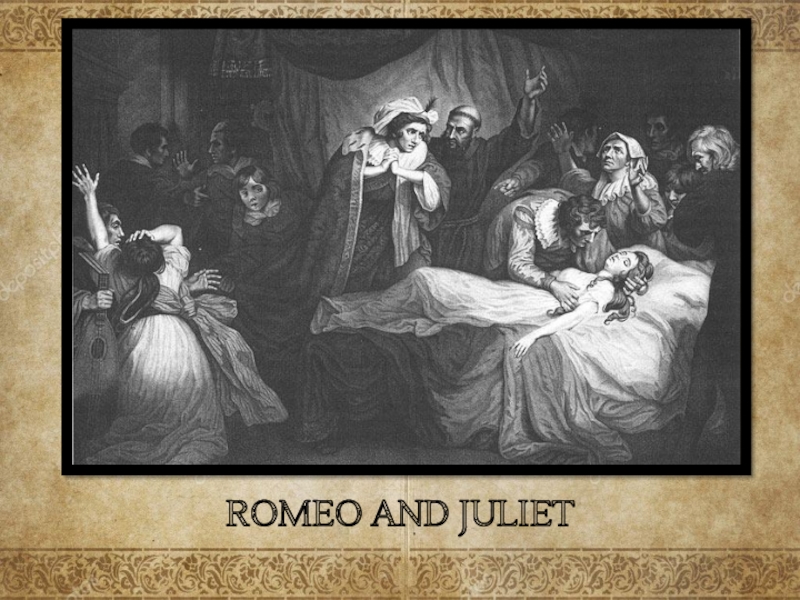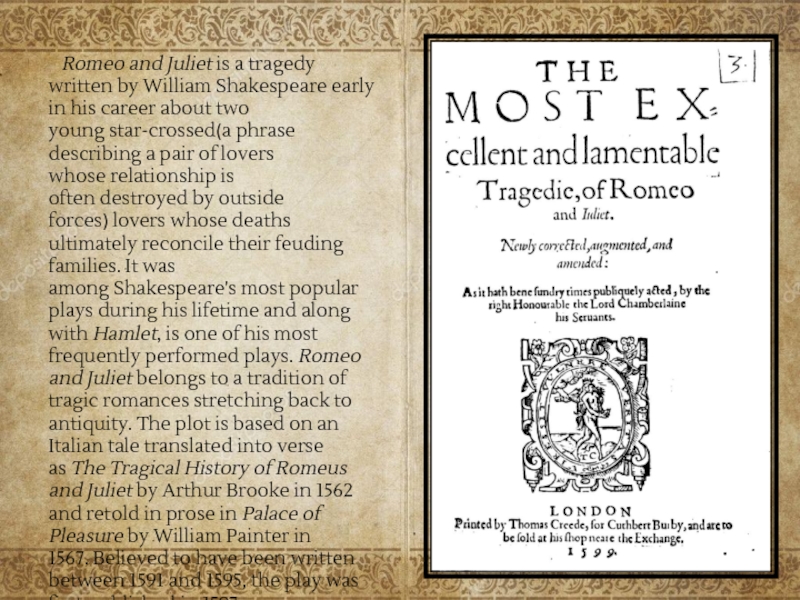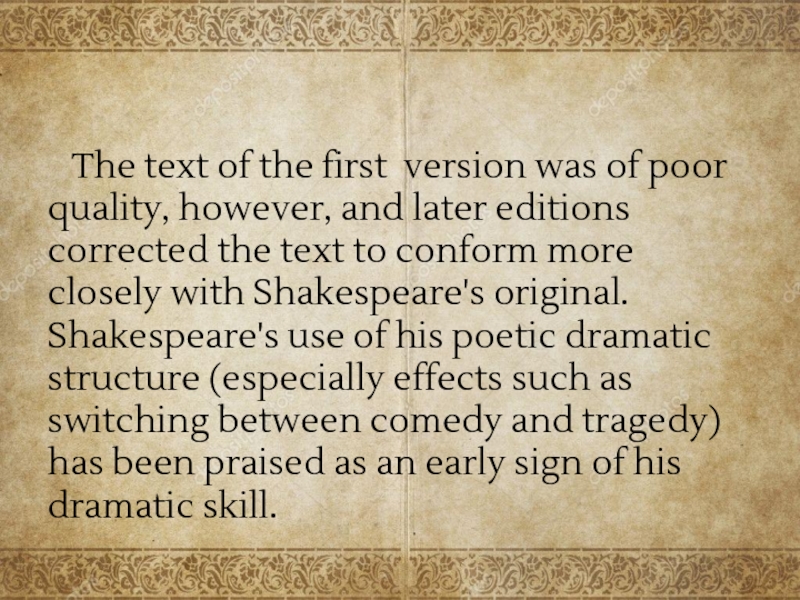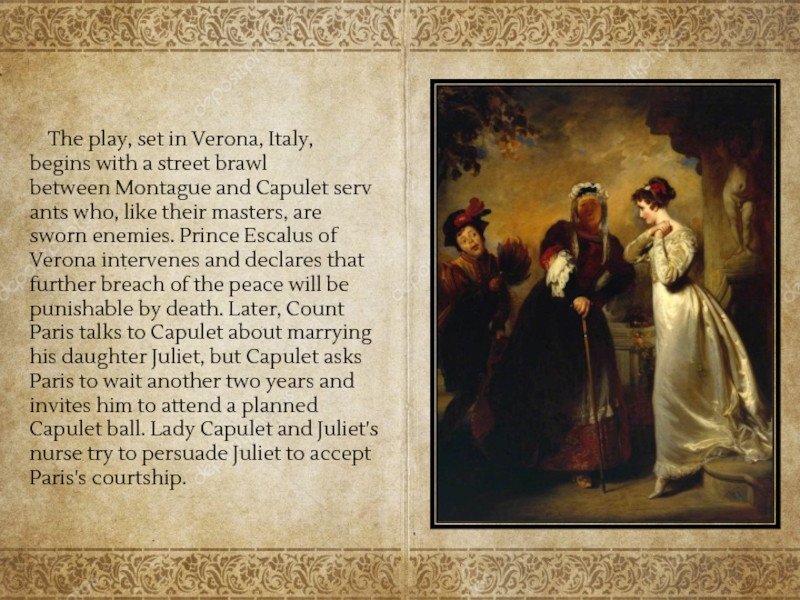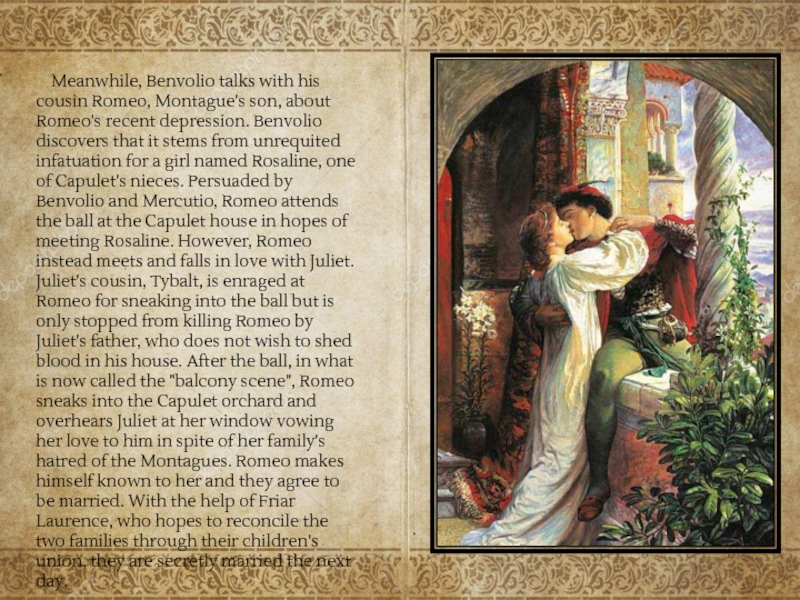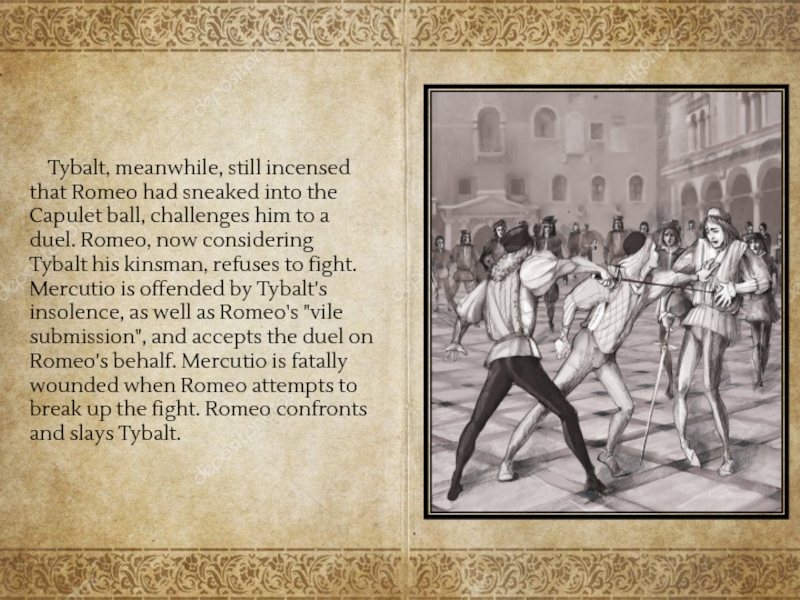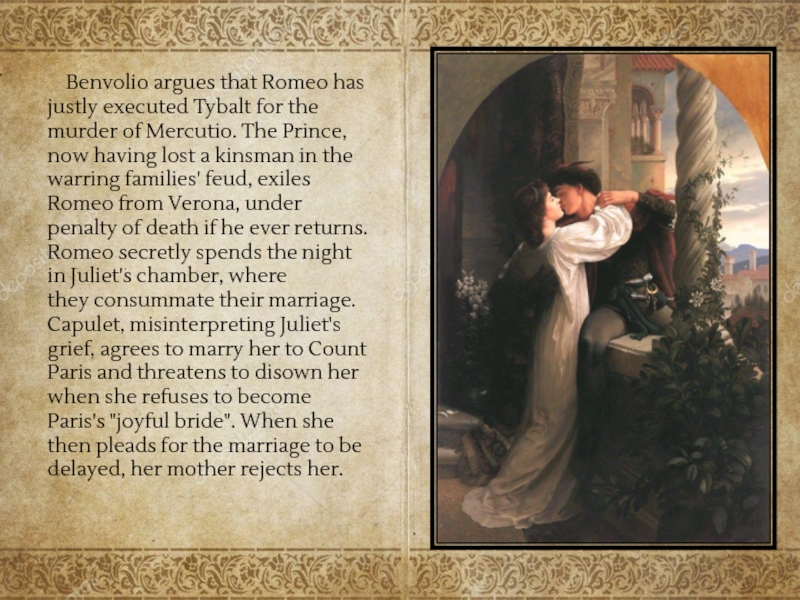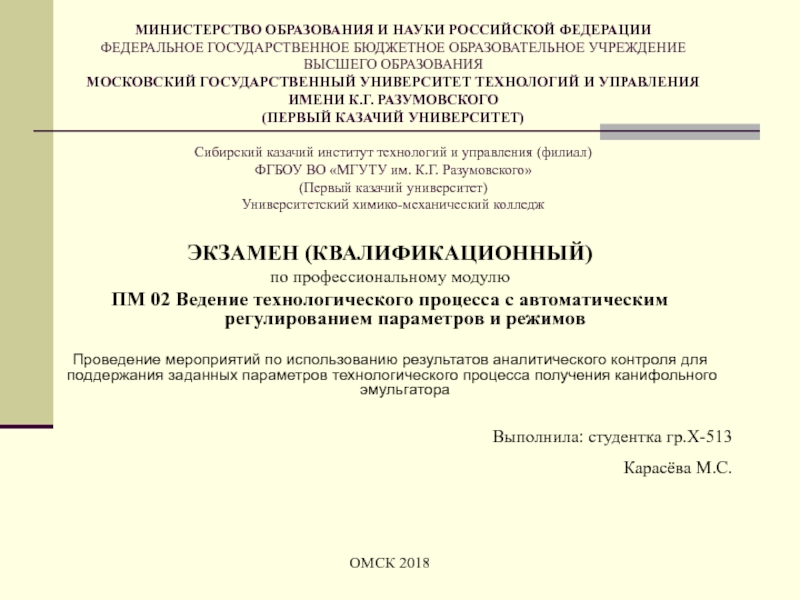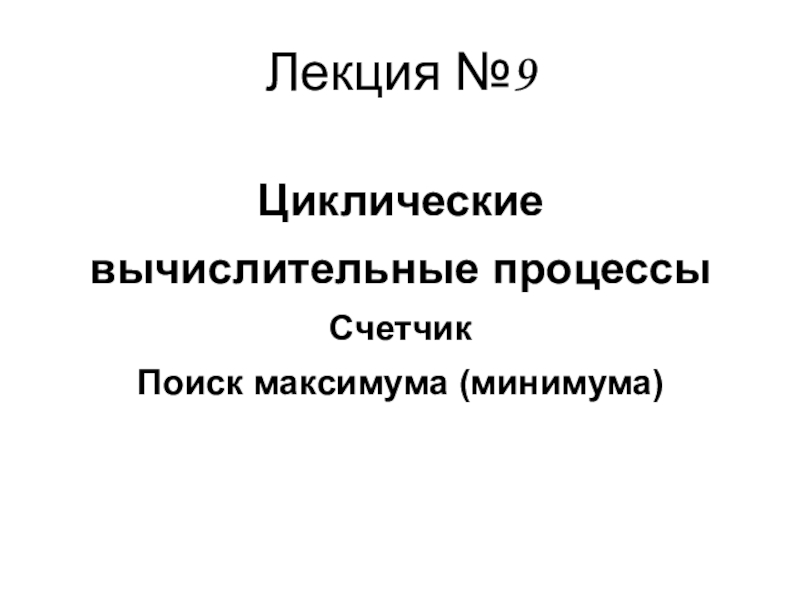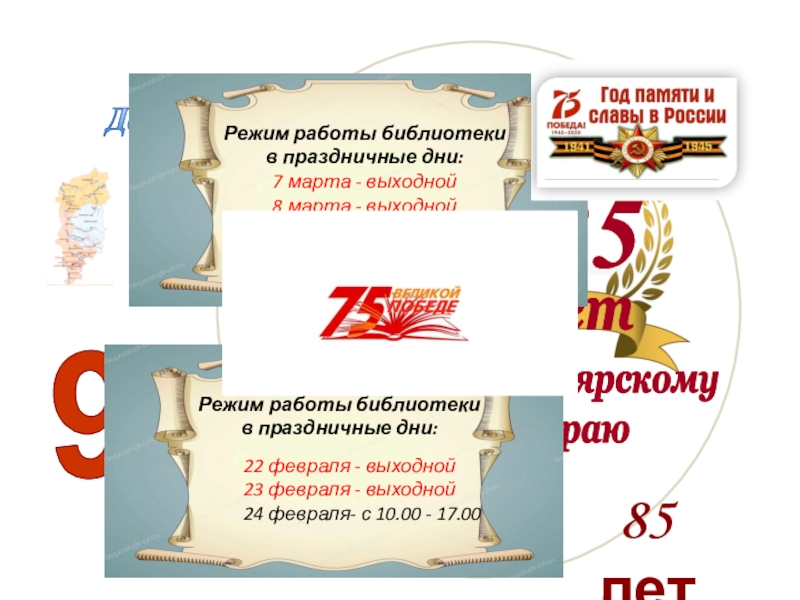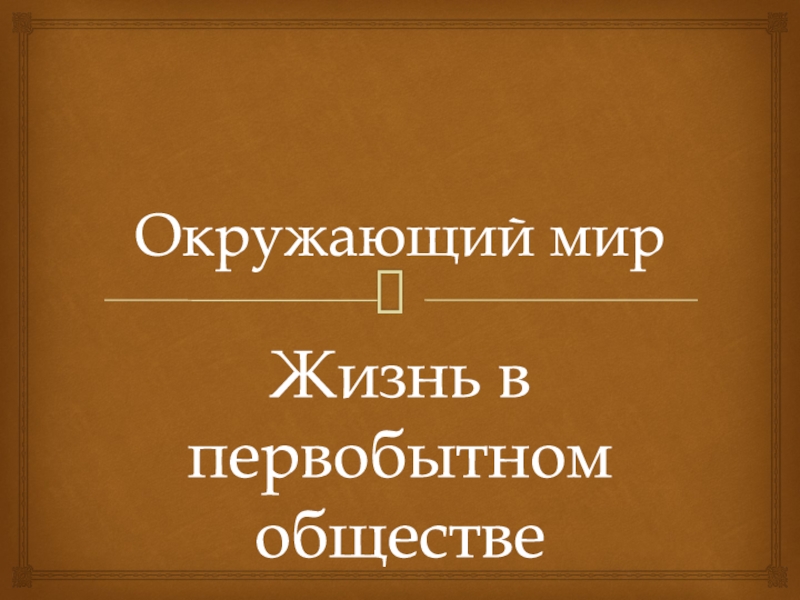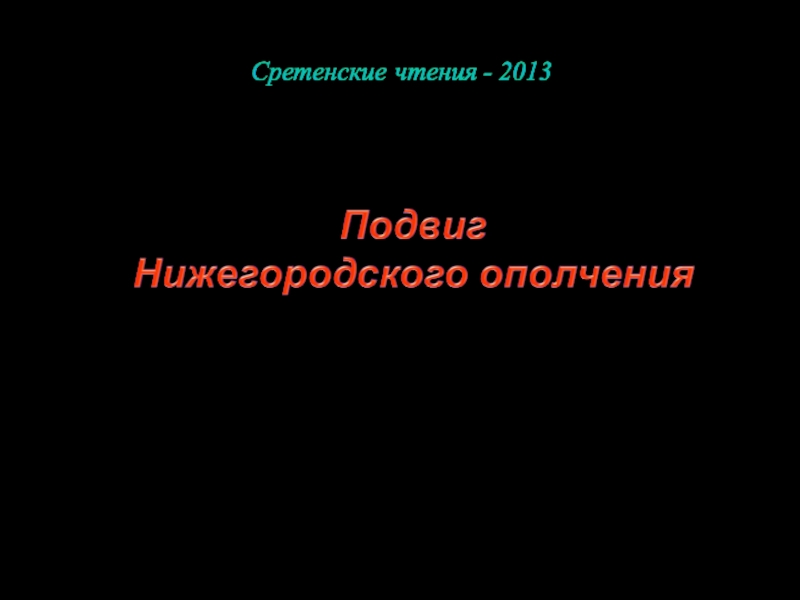Слайд 2 Romeo and Juliet is a tragedy written by William Shakespeare early
in his career about two young star-crossed(a phrase describing a pair
of lovers whose relationship is often destroyed by outside forces) lovers whose deaths ultimately reconcile their feuding families. It was among Shakespeare's most popular plays during his lifetime and along with Hamlet, is one of his most frequently performed plays. Romeo and Juliet belongs to a tradition of tragic romances stretching back to antiquity. The plot is based on an Italian tale translated into verse as The Tragical History of Romeus and Juliet by Arthur Brooke in 1562 and retold in prose in Palace of Pleasure by William Painter in 1567. Believed to have been written between 1591 and 1595, the play was first published in 1597.
Слайд 3 The text of the first version was of
poor quality, however, and later editions corrected the text to
conform more closely with Shakespeare's original. Shakespeare's use of his poetic dramatic structure (especially effects such as switching between comedy and tragedy) has been praised as an early sign of his dramatic skill.
Слайд 4
The play, set in Verona, Italy, begins with a street
brawl between Montague and Capulet servants who, like their masters, are sworn enemies. Prince Escalus
of Verona intervenes and declares that further breach of the peace will be punishable by death. Later, Count Paris talks to Capulet about marrying his daughter Juliet, but Capulet asks Paris to wait another two years and invites him to attend a planned Capulet ball. Lady Capulet and Juliet's nurse try to persuade Juliet to accept Paris's courtship.
Слайд 5 Meanwhile, Benvolio talks with his cousin Romeo, Montague's son, about Romeo's
recent depression. Benvolio discovers that it stems from unrequited infatuation
for a girl named Rosaline, one of Capulet's nieces. Persuaded by Benvolio and Mercutio, Romeo attends the ball at the Capulet house in hopes of meeting Rosaline. However, Romeo instead meets and falls in love with Juliet. Juliet's cousin, Tybalt, is enraged at Romeo for sneaking into the ball but is only stopped from killing Romeo by Juliet's father, who does not wish to shed blood in his house. After the ball, in what is now called the "balcony scene", Romeo sneaks into the Capulet orchard and overhears Juliet at her window vowing her love to him in spite of her family's hatred of the Montagues. Romeo makes himself known to her and they agree to be married. With the help of Friar Laurence, who hopes to reconcile the two families through their children's union, they are secretly married the next day.
Слайд 6
Tybalt, meanwhile, still incensed that Romeo had sneaked
into the Capulet ball, challenges him to a duel. Romeo,
now considering Tybalt his kinsman, refuses to fight. Mercutio is offended by Tybalt's insolence, as well as Romeo's "vile submission", and accepts the duel on Romeo's behalf. Mercutio is fatally wounded when Romeo attempts to break up the fight. Romeo confronts and slays Tybalt.
Слайд 7 Benvolio argues that Romeo has justly executed Tybalt
for the murder of Mercutio. The Prince, now having lost
a kinsman in the warring families' feud, exiles Romeo from Verona, under penalty of death if he ever returns. Romeo secretly spends the night in Juliet's chamber, where they consummate their marriage. Capulet, misinterpreting Juliet's grief, agrees to marry her to Count Paris and threatens to disown her when she refuses to become Paris's "joyful bride". When she then pleads for the marriage to be delayed, her mother rejects her.
Слайд 8 Juliet visits Friar Laurence for help, and he
offers her a potion that will put her into a
deathlike coma for "two and forty hours". The Friar promises to send a messenger to inform Romeo of the plan so that he can rejoin her when she awakens. On the night before the wedding, she takes the drug and, when discovered apparently dead, she is laid in the family crypt. The messenger, however, does not reach Romeo and, instead, Romeo learns of Juliet's apparent death from his servant, Balthasar. Heartbroken, Romeo buys poison from an apothecary and goes to the Capulet crypt. He encounters Paris who has come to mourn Juliet privately. Believing Romeo to be a vandal, Paris confronts him and, in the ensuing battle, Romeo kills Paris. Still believing Juliet to be dead, he drinks the poison. Juliet then awakens and, discovering that Romeo is dead, stabs herself with his dagger and joins him in death. The feuding families and the Prince meet at the tomb to find all three dead. Friar Laurence recounts the story of the two "star-cross'd lovers". The families are reconciled by their children's deaths and agree to end their violent feud. The play ends with the Prince's elegy for the lovers: "For never was a story of more woe / Than this of Juliet and her Romeo."
